A rejection of the existence of a ‘deep state’ controlling the country, versus the actual power of the President, more criticism of Morsy’s apparent hypocrisy and lack of transparency, a reappraisal of the scale of political Islam in Egypt and instructions to the Vice President and the army; columnists are tackling a range of issues with their usual verve and bombast.
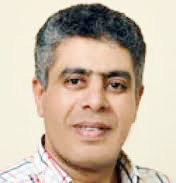
The deep state…. and the dumb state
Emad El-Din Hussein
Al-Shorouk Newspaper
Hussein emphatically rejects the notion of the ‘deep state’, which many believe controls Egypt. He points to recent events, particularly President Morsy’s decisions, as evidence contrary to the idea. He recalls Presidents Sadat and Mubarak’s ability to keep a tight hold on power as individuals, and claims that Morsy’s recent batch of decisions is a mere continuation of this trend.
The writer suggests that the President’s chair has always been surrounded by an aura of power in Egypt, and that Morsy is merely repeating a pattern. He claims that such a pattern renders the idea of a deep state in Egypt unfeasible. According to Hussein, the deep state is a myth that exists only in the minds of those who want to believe it, and the ease with which the heads of the army were removed is ample proof of this.
He writes that the attempted reinstatement of parliament and the appointment of a low-profile cabinet were the first steps in a process that ended with the removal of the overwhelming majority of key security chiefs, consolidating unprecedented power in the President’s hands.
The column closes with a warning to the President, reminding him that previous Presidents also held immense power, but eventually and quickly lost it, and that only his just rule will guarantee his position.
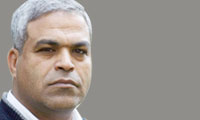
The Vice President!
Mahmoud Ghalaab
Al-Wafd Newspaper
Placing some of Morsy’s key actions and appointments so far under the microscope, Ghalaab finds plenty to criticise, observing a distinct lack of transparency and some poorly timed decisions.
Following the surprise appointment of Mahmoud Mekky as Vice President by Morsy, Ghalaab expresses astonishment at the move, which directly contradicts statements made by Dr Yasser Ali, the President’s official spokesperson.
Ghalaab recalls Ali’s statements, made on Sunday 12 August, informing the public that the appointment of a vice president would not be made until September at the earliest, only for the President to appoint his Vice President one day later. The columnist considers this evidence of a flagrant lack of transparency in the institution of the presidency, which withholds information even from its spokesman for reasons of political timing. He further criticises the fact that the Vice President’s authority has yet to be determined, and claims it is not clear whether it was agreed upon between the President and his appointee behind closed doors.
The writer also questions the removal of Field Marshall Tantawi and Lieutenant General Sami Ennan from their posts days after they were granted a renewal of trust via the inclusion of the Tantawi in the new cabinet, particularly in light of ongoing military operations in Sinai.
All of these happenings lead Ghalaab to declare the need for more transparency and clarity.
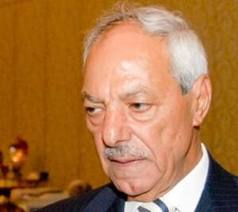
On Political Islam and Power
Talaal Salman
Al-Shorouk Newspaper
Salman addresses the rise of Islamist forces to power in the Arab world with extreme skepticism. He claims that political Islam and the groups affiliated to it have come to power despite having little political experience, using the votes and support of other currents more entitled to shape the new era.
He insists that recent elections proved that Islamists are not the majority, claiming that they have in fact never been, and he asserts that the forces of political Islam did not start the revolutions and uprisings taking place, but partook in them, and only then with an eye to eventually grabbing the reigns of power.
Salman examines US support (both overt and covert) for the Arab revolutions and for the forces of political Islam, rejecting what he perceives to be the attempted oversight of the revolutions by the US. He warns that Israel, which he labels an enemy, is content with the weakness he claims is evident in the newly shaped Arab world after the failure of the revolutionaries in forming the states they envisioned, and he states that the responsibility for leading Arab nations in the coming period should not and cannot be monopolised by one party or political group.
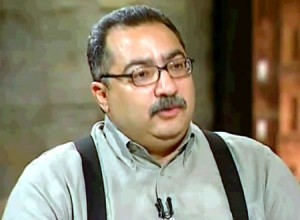
The Vice President and the General
Ibrahim Eissa
Al-Tahrir Newspaper
In response to the appointment of newly promoted General Abdelfattah Al Seesee as head of the armed forces and Mahmoud Mekky as Vice President, Issa relays a message to both men.
Issa asks of Mekky only that he remain as honorable as he has always been, adding lightheartedly that the people would be grateful if the Vice President lost some weight for the sake of his health and appearance.
But the bulk of the column is directed towards the new Minister of Defence, with a list of four major goals that in his view should be pursued by the army.
According to Issa, the army must pursue modernisation in all aspects. It must reclaim its former positive image in the public eye as well, after the damage inflicted upon it by the tenure of the Supreme Council of the Armed Forces as rulers of Egypt. The third endeavor he demands of the army is that it withdraw from all economic activity, hand over all economic assets to regulated civilian authorities, and subject its budget to parliamentary oversight. Finally, Issa stresses that the Egyptian army must remain a secular institution, resisting efforts which he is certain will be exerted by Islamist forces to Islamise the army and transform it into a sectarian tool.
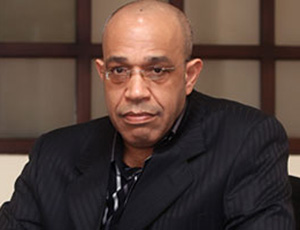
The slaughter of the Brotherhood’s opposition using Mubarak’s laws
Saeed Shoeib
Al-Dostour Newspaper
Shoeib launches a tirade against the Muslim Brotherhood and their latest antics regarding the media. He claims that the Brotherhood’s treatment of opposition journalists and TV presenters is indicative of the fact that the group is using the same tactics employed by Mubarak and Sadat and Nasser before him.
The columnist accuses the Brotherhood of attempting to transfer ownership of the country from Mubarak to the Brotherhood’s Supreme Guide Mohamed Badie, and labels their efforts ‘cheap political opportunism.’
He denounces the alleged hypocrisy evident in the Brotherhood’s practices, which he claims contradicts their positions before they came to power. Shoeib lambasts what he perceives to be smear campaigns against opposition media personalities, which he says are combined with intimidation and legal measures using Mubarak-era laws (such as the one used to shut down the Al-Fara’een TV station) to repress the media in much the same manner Mubarak’s regime did. He also rejects the continued authority practiced by the Shura council over state media.
The reader is invited to recollect how the Brotherhood protested against such laws and tactics during the Mubarak era, the very same laws and tactics the writer alleges are currently being used by the Brotherhood to consolidate control of the media.


